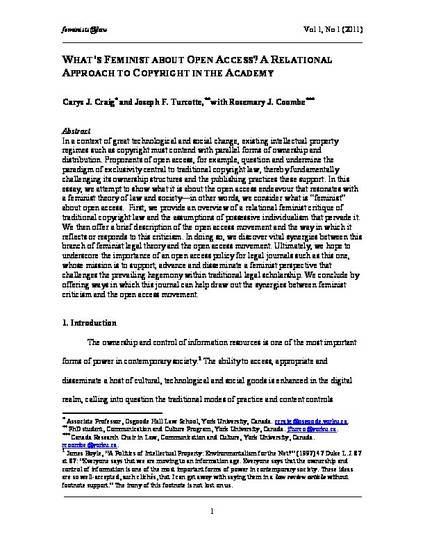
- Copyright,
- Feminism,
- Open Access
In a context of great technological and social change, existing intellectual property regimes such as copyright must contend with parallel forms of ownership and distribution. Proponents of open access question and undermine the paradigm of exclusivity central to traditional copyright law, thereby fundamentally challenging its ownership structures and the publishing practices these support. In this essay, we attempt to show what it is about the open access endeavour that resonates with a feminist theory of law and society - in other words, we consider what is “feminist” about open access. First, we provide an overview of a relational feminist critique of traditional copyright law and the assumptions of possessive individualism that pervade it. We then offer a brief description of the open access movement and the way in which it reflects or responds to this criticism. In doing so, we discover vital synergies between this branch of feminist legal theory and the open access movement. Ultimately, we hope to underscore the importance of an open access policy for legal journals such as this one, whose mission is to support, advance and disseminate a feminist perspective that challenges the prevailing hegemony within traditional legal scholarship. We conclude by offering ways in which this journal can help draw out the synergies between feminist criticism and the open access movement.
